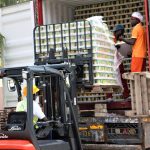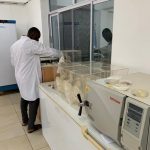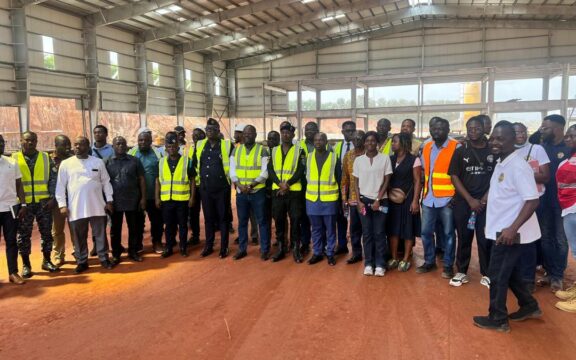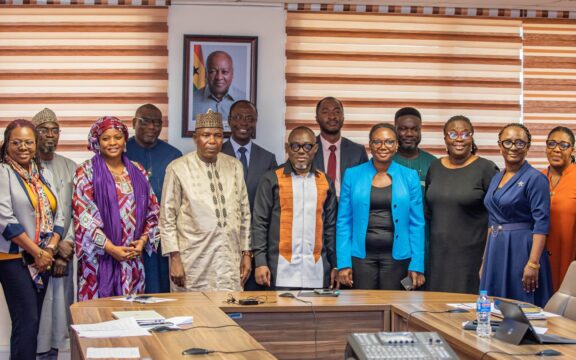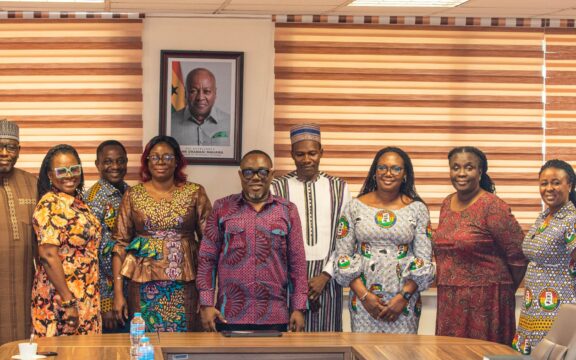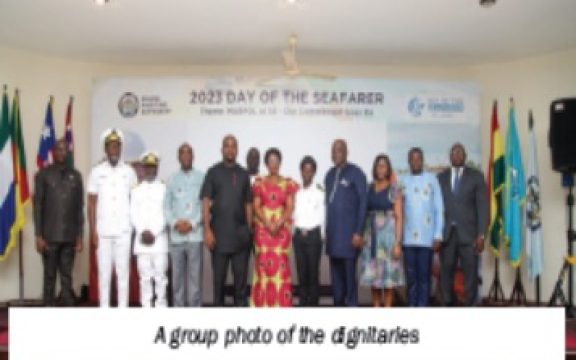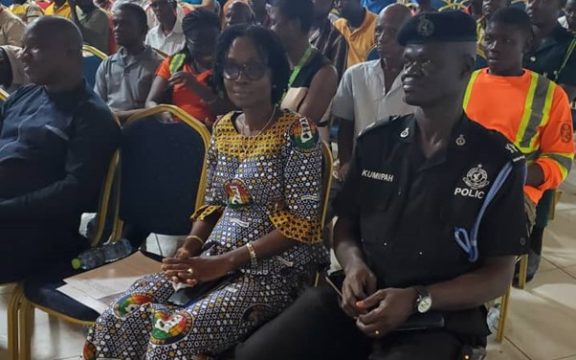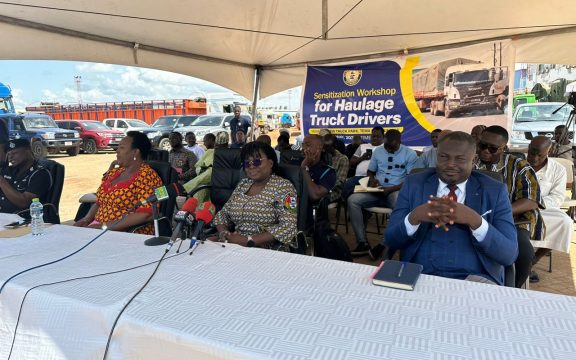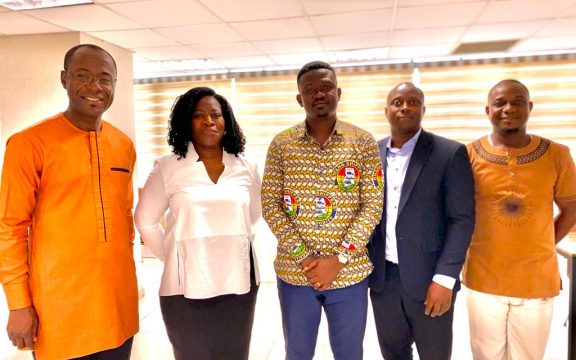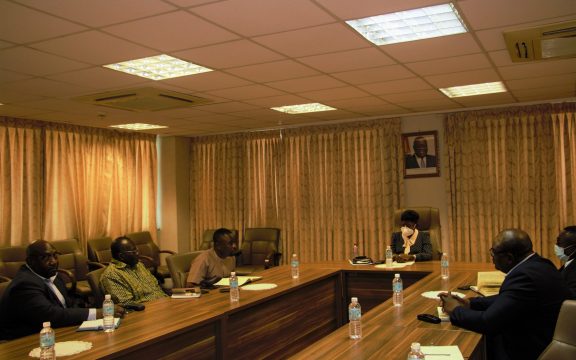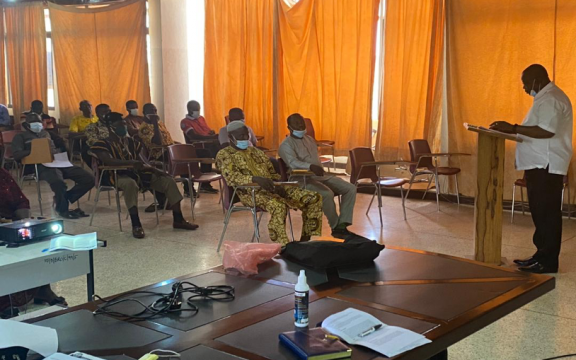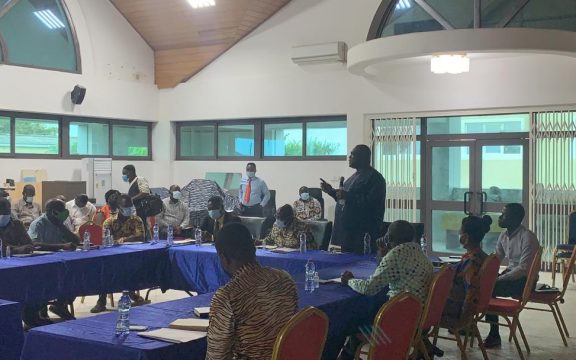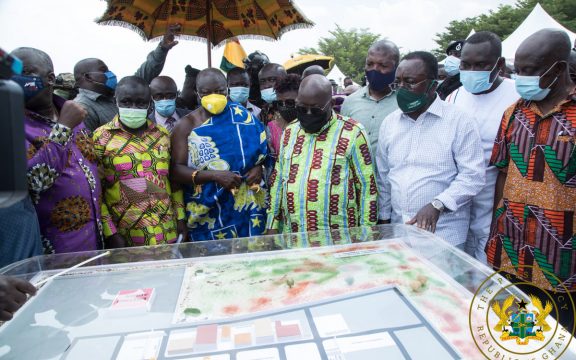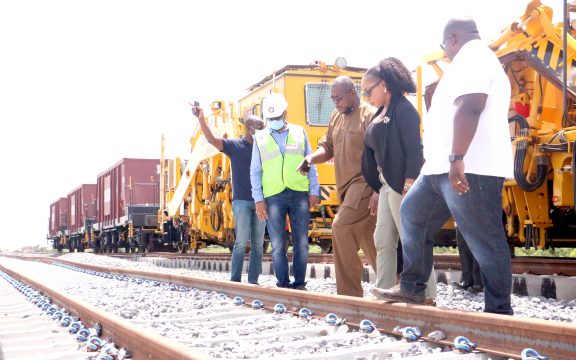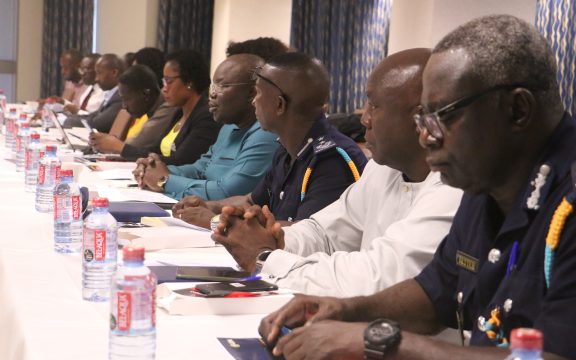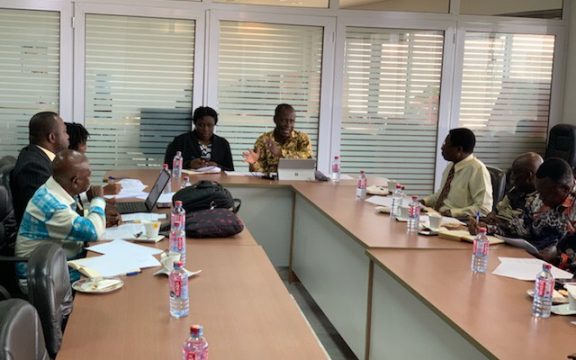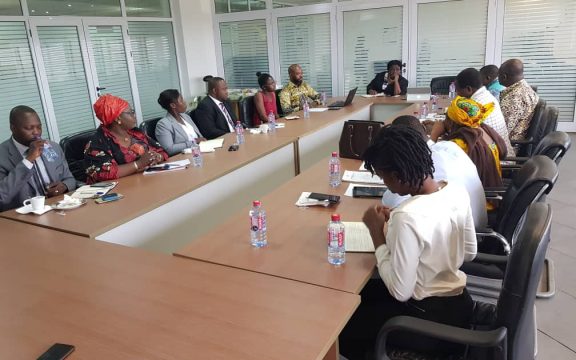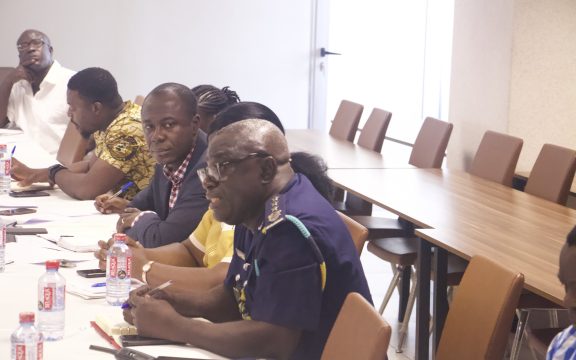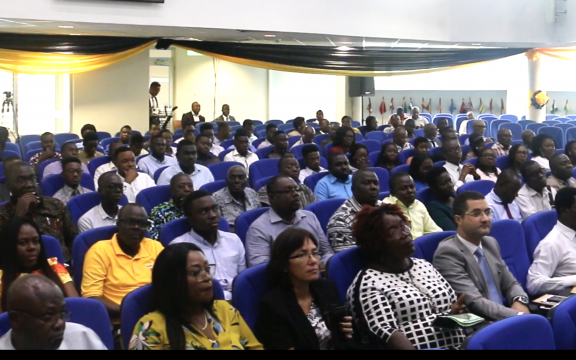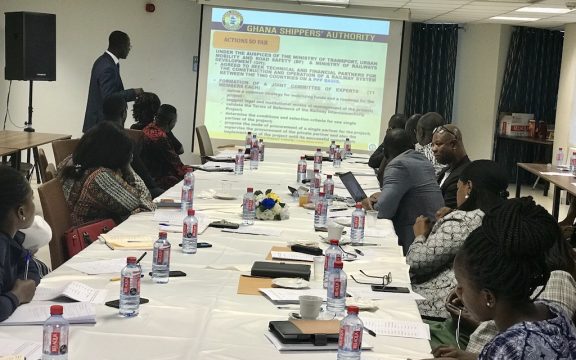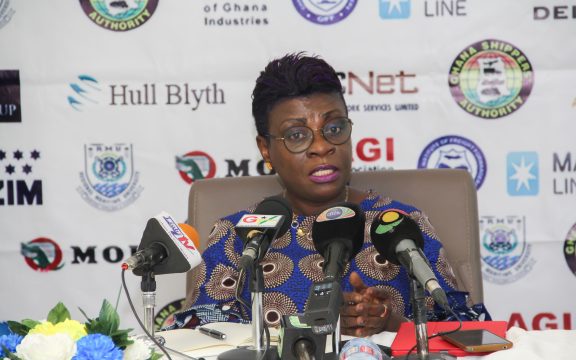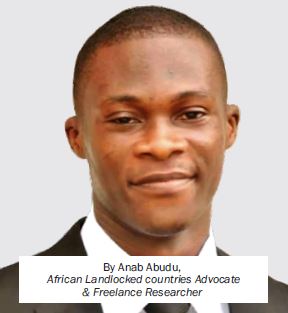
An estimated 97% of the world’s water is found in the oceans which cover about 71% of the earth’s surface. Its vast coverage of the earth means that, it has a huge influence on weather patterns, temperature, the food supply of humans and other organisms,1 including absorbing greenhouse gases to keep climate change in check and facilitating communication and trade.2 The oceans have also been fundamental in shaping human history and civilisation.
A recent publication by UNCTAD reported that over three (3) billion people mostly in developing countries depend on ocean resources as a means of support thus contributing to poverty eradication. Despite this huge dependence on the oceans for livelihood, National Geographic reports that only 20% of the world’s oceans have been mapped, explored or seen. Thus more than 80 percent of the ocean has never been mapped, explored, or even been seen by humans. Further, it suggests that a far greater percentage of the surfaces of the moon and the planet Mars has been mapped and studied more than our own ocean floor.4
This presents huge opportunities for participation in the ocean economy by all countries. It is noteworthy that more than half of the world’s deep seabed area falls outside national jurisdictions and is recognised as the common heritage of all of humankind.
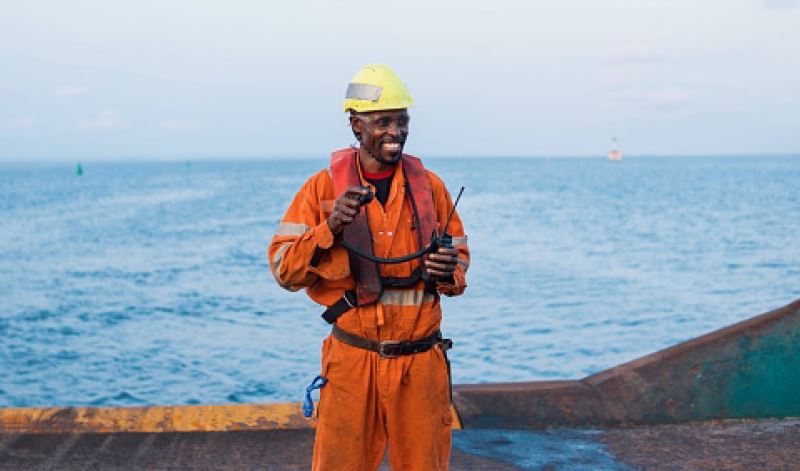 For landlocked countries however, their lack of direct access to seacoasts has limited their interest in the oceans, and its related resources and opportunities. For instance, landlocked countries like Chad, Niger, Zambia and Zimbabwe are in excess of 2,000 km from the nearest seacoast. This situation not only limits their interest and participation in the ocean economy but also poses significant challenges to their economies, particularly in terms of engaging with global markets. This is because over 80% of global trade is by maritime which is often seen as the backbone of economic growth and development.
For landlocked countries however, their lack of direct access to seacoasts has limited their interest in the oceans, and its related resources and opportunities. For instance, landlocked countries like Chad, Niger, Zambia and Zimbabwe are in excess of 2,000 km from the nearest seacoast. This situation not only limits their interest and participation in the ocean economy but also poses significant challenges to their economies, particularly in terms of engaging with global markets. This is because over 80% of global trade is by maritime which is often seen as the backbone of economic growth and development.
While the United Nations Convention on the Law of the Sea (UNCLOS) of 1982 recognises the right of “every state, whether coastal or landlocked to sail ships flying its flag on the high seas”, African landlocked countries have not fully exploited the economic opportunities that the maritime industry offers. These opportunities include training seafarers for navigation on the high seas, manufacturing shipping parts, shipbreaking, or the less reputable practice of lending flags of convenience.
Ethiopia has been the exception, which maintains sea access through the port of Djibouti, runs a national shipping agencies (the Ethiopian Shipping & Logistics Services Enterprise), trains seafarers and in 2018 hinted of reviving its naval force which was disbanded after Eritrea became independent in 1993.5 Several agencies and institutions including the Ethiopian Maritime Training Institute (EMTI) and Ghana’s Regional Maritime University have contributed to training young Ethiopian seafarers to export their skills on ships all around the world. The maritime industry and related sectors are thus more popular in the country than in other landlocked countries.
The ocean economy as described by the OECD “encompasses ocean-based industries (such as shipping, fishing, offshore wind, marine biotechnology), but also natural assets and ecosystem services that the ocean provides (fish, shipping lanes, CO2 absorption and the like)”. The global value of the ocean economy is estimated to be over three (3) trillion dollars.
It presents a huge opportunity to boost economic growth and tackle unemployment, food insecurity and poverty, especially with the rise of new activities such as offshore wind energy, growing aquaculture and marine biotechnologies.
Rights of landlocked countries to the oceans and ocean economy
“UNCLOS recognises that no country, including landlocked developing countries (LLDCs), should be left behind in benefiting from this economy because the convention gives them rights to access and to use the ocean space including the marine resources. Articles 69 on Right of land-locked States, Article 125 on Right of access to and from the sea and freedom of transit, Article 136 on Common heritage to mankind and Article 140 on Benefit of mankind confer right of access and benefit from ocean resources to landlocked countries.” Further, LLDCs, like all other States, enjoy the high seas freedoms of navigation and overflight and of laying submarine cables and pipelines, and other internationally lawful uses of the sea related to these freedoms (UNCLOS, Art. 58(1)). These rights granted to landlocked countries under UNCLOS are essential to achieving the objectives of the Vienna Programme of Action (VPoA) and ensuring that all can benefit from the blue economy.
All Parties to the 1982 United Nations Convention on the Law of the Sea (UNCLOS) are automatic members of the International Seabed Authority (ISA) – the organization through which Parties to UNCLOS shall organize and control all mineral-related activities in the international seabed area, known also as “the Area.”
Although landlocked developing countries make up 10%t of the membership of the Authority, only 20 out of the 32 landlocked developing countries in the world have so far become parties to UNCLOS and members of the Authority. From the view point of African landlocked countries, only 11 out of the 16 are member states of the Authority,6 except Burundi, Central African Republic, Ethiopia, Rwanda and South Sudan.
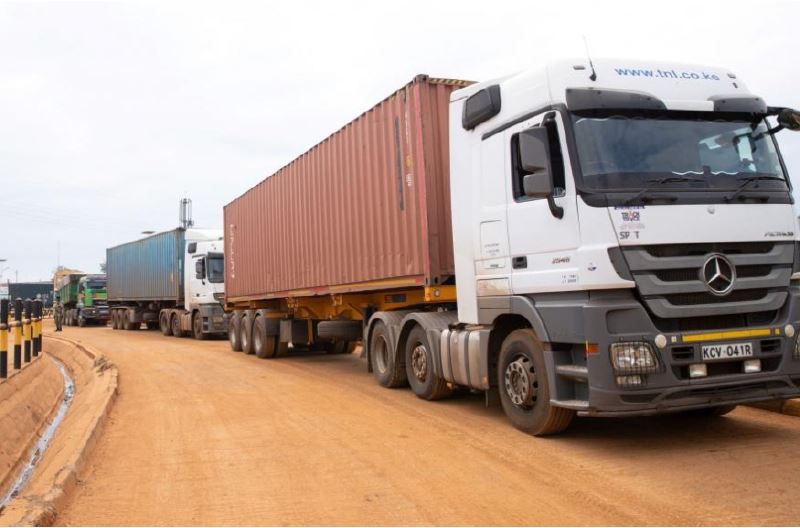
Gender participation in the ocean economy
According to the ISA the best available global estimates in ocean science were provided in 2020 through the Global Ocean Science Report GOSR (IOC-UNESCO, 2020). In that report data was provided by 40 countries. It showed that on average women make up to 37% of ocean science personnel reflecting the historical gender gap in STEM education.
The Women in Deep-Sea Research (WIDSR) Project
In 2021, the Authority in partnership with the United Nations Office of the High Representative for the Least Developed Countries, Landlocked Developing Countries and Small Island Developing States (UN-OHRLLS) launched the Women in Deep-Sea Research (WIDSR) project.
The WIDSR project aims at addressing the critical challenges faced by women scientists from developing States, particularly from the Least Developing Countries (LDCs), LLDCs and Small Island Developing States (SIDS), in accessing opportunities for careers and leadership roles in deep sea research with a view to strengthening the resource base of such countries in highly technical and emerging areas of knowledge. The project also focuses on improving the availability of data and information on the current status of women scientists in deep-sea research in LDCs, LLDCs and SIDS and identifying critical barriers and potential solutions in relation to women’s participation and leadership in deep-sea research and related fields and activities.
Apart from other countries in LLDCs and LDCs group, the report focused on three (3) African landlocked countries – Botswana, Lesotho and Malawi.
Findings of the WIDSR 2021 report on LLDCs
Even though the overall field of interest for the study was deep-sea research and related disciplines and activities, the scope of the study was expanded to include transferable skills from expertise in related sectors in landlocked countries obviously because of their limited interest and investment in these activities.
Some of the key findings of the report are:
- While the report showed that among the surveyed population, 92% of the participating SIDS echoed the importance of investing in deep-sea research, followed by 60% per cent of LDCs and 40% per cent of LLDCs recognize the importance of engaging and investing in deep-sea research for their countries reaffirming their lack of interest in oceans activities because of their remoteness from seacoasts.
- The lack of engagement with the international ocean science community was seen as a particular barrier for women from LLDCs.
- The key challenges faced by (women) students in deep-sea research are lack of career guidance and internship opportunities and lack of job opportunities in the country.
- The report also found that while most of the surveyed countries have at least one or two government departments or public institutions with engagement in deep-sea research, LLDCs reported fewer than LDCs and SIDS.
- The top five career challenges listed by individual survey respondents from LLDCs, in directly addressing their lack of access to and connection with the ocean were listed as follows:
- The difficulty in getting a deep knowledge of the marine industry.
- The subject of deep-sea research not being one of interest nationally.
- Lack of communication and cooperation with maritime countries.
- Lack of national experience in conducting ocean science research.
- Lack of appreciation of the importance of the Law of the Sea.
Even though engagement with students in the individual survey was low, at 10% of responses, the main challenges listed by them in succeeding in deep-sea research included:
- Lack of career guidance
- Lack of finances to do field work.
iii. Lack of available internship opportunities in the country.
- Lack of proper education system in relation to deep-sea research fields.
- Lack of job opportunities and proper pay scale.
- Engineering streams at universities being pre-dominantly male-dominated.
Conclusions of the report
The report concluded that gender related issues are well addressed at the highest level in the constitutions of all the profiled LLDCs, with a varying range of provisions. Botswana’s Constitution has been assessed as relatively having less protection for women. Lesotho’s Constitution uses ‘he’ and language pertaining to men, despite also mentioning equality.
Overall, data availability is limited, particularly, in relation to national and institutional budgetary contributions in deep sea research as well as gender-disaggregated information in relation to education and skills training.
All LLDCs profiled have in place national gender policies, two linking gender and development (Botswana and Lesotho), and one resulting in a commission to implement and monitor its gender policies (Botswana). One profiled LLDC (Botswana) has a STEM-specific gender policy in place. While the major economic sector in the profiled LLDCs is not related to ocean resources and comprises of mainly land-based mining or agriculture, most have a range of national policies that relate to the ocean and water resources addressing the smaller fisheries, aquaculture and water sectors, and most of these policies do not address women or gender equality. The exception is Lesotho’s Minerals and Mining policy which supports gender equality. Malawi has policies relating to women’s roles in key decision-making around sustainable environmental management.
In tertiary education enrolments, women are more represented than men in all the profiled LLDCs however, the overall enrolment rates remain mostly low.
Recommendations based on the report
Governments, national statistics offices and organisations must promote standardisation of gender-disaggregated data collection and reporting in fields related to deep-sea research.
Governments of landlocked countries must increase budgetary allocation in deep-sea research/ocean-based sectors and include gender considerations in the expenditure.
Governments of landlocked countries, must support the participation of women deep-sea researchers/careers in international ocean science initiatives, such as conferences, meetings, workshops, etc.
International and regional organisations like the AU, ECOWAS, SADC, EAC, etc., must promote and support early career mentoring programmes in landlocked countries for women in deep-sea research and make allocations for their participation in regional maritime and ocean-related programmes.

